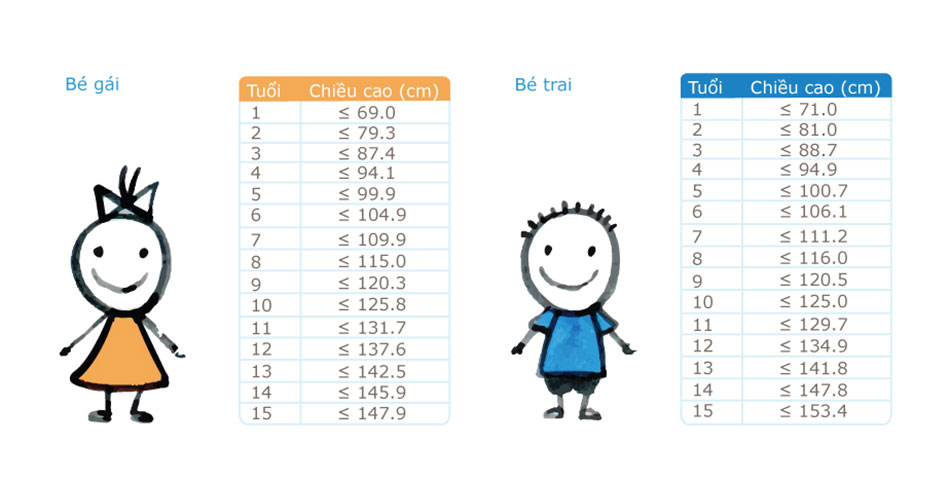Table of contents
Children who don’t show any change in height over a long period, never grow out of their clothes and are always the shortest in class, may have a lack of growth hormone. This condition, which might be accompanied and compounded by poor nutrition, can lead to serious problems.
Growth hormone deficiency in children: an important issue that’s difficult to recognise
Nguyen Thi Thu Huong, MSc, MD, a specialist at FV Hospital’s Endocrinology Unit within the Department of Internal Medicine, says that there are many causes of “shortness” in children. These include malnutrition, chronic disease, being born pre-term, and Turner syndrome, a condition when one of the X chromosomes in females is missing or partially missing. Among them, growth hormone deficiency, although accounting for a very low incidence of from one in 4000 to one in 10,000 children, is a significant cause of growth retardation in children and can be very difficult to recognise.
Growth hormone deficiency is a condition in which a child’s body does not produce or release enough growth hormone for them to achieve a normal height for their age and sex. Although a lack of growth hormone does not affect the health and intelligence of children, being short, especially in adulthood, can make children feel inferior to their peers and experience inconvenience when participating in activities which carry a minimum height restriction, such as driving motor vehicles or riding a rollercoaster.

Parents should pay attention to the following indications that a child has growth hormone deficiency:
- Their height is <-2 standard deviations, based on WHO growth charts for their age and sex
- Their growth rate is <= 4 centimetres (cm) a year
- They are shorter and have younger-looking faces than their schoolfriends
- Boys have smaller than average small penises
- The child has been consistently small for their age since birth.
Treating growth hormone deficiency in children
If a child is exhibiting the above signs, parents should take them to see a doctor with expertise in paediatric endocrinology for examination, diagnosis and appropriate treatment advice. The best time to treat children with growth hormone deficiency is from four to 13 years old, before the cartilage in their bones close. If a child is diagnosed with growth hormone deficiency after puberty, any treatment provided will not be effective at increasing their height.
When it is determined that the cause of below-normal height is a lack of growth hormone, the child will be prescribed subcutaneous growth hormone injections. Clinical trials and actual treatment show that this method can increase height at a rate of eight to 12 cm in the first year, and this effect continues in the following years. This method has been approved by the FDA for three decades and, if given in appropriate doses, is safe and poses no long-term danger to the child’s brain development and health. If children are malnourished, growth hormone therapy combined with nutrition will help children to achieve their optimal height in adulthood.

Dr Thu Huong also recommends that parents measure their children’s height at least every six months, ideally every three months, and compare it to the WHO growth chart. If the baby’s height is found to be under two standard deviations, or the growth rate is ≤2 cm in six months, this is a sign of abnormality.
FV’s Endocrinology Unit, located within the Internal Medicine Department, offer consultations, screening and treatment via growth hormone supplements to help children to achieve their full height. The treatment of growth hormone supplements for height growth must be thoroughly diagnosed and determined.
When performing screening, doctors will ask details questions about the child’s birth history, related diseases and average growth rate. Additional to their clinical examination, they might measure the child’s height and take X-rays of the left hand bone when indicated to assess bone age. In suspected cases of delayed height growth due to GH deficiency, doctors will perform further in-depth tests and advise on the appropriate treatment direction.
To book an appointment with Dr Nguyen Thi Thu Huong, Endocrinology Unit, Department of Internal Medicine, please contact: 028 35 11 33 33.
This content belongs to the growth hormone deficiency in children awareness campaign of FV Hospital in collaboration with Novo Nordisk
Source: thoidaiplus.suckhoedoisong.vn



